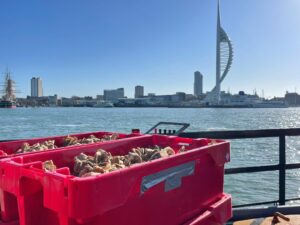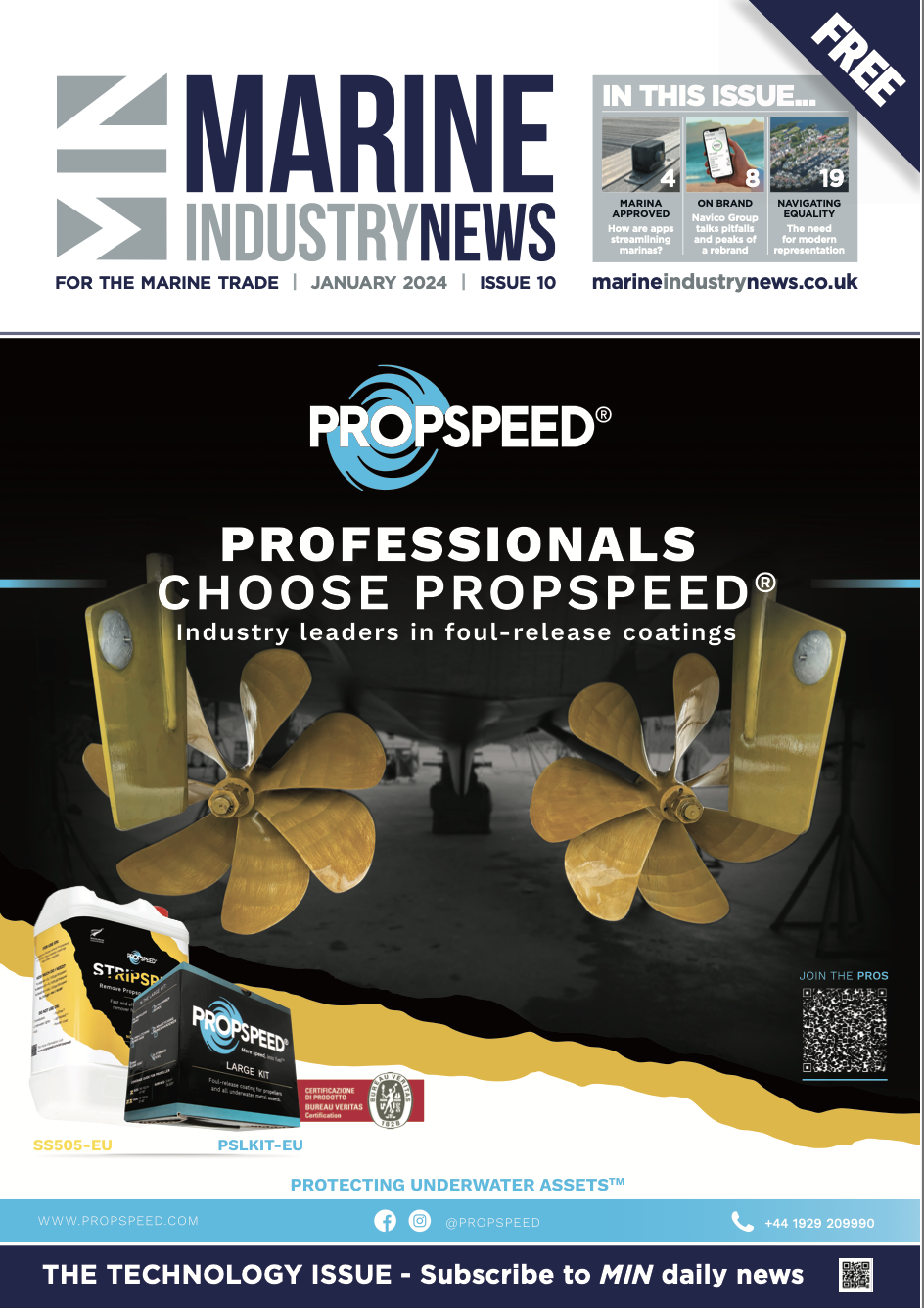Fatal boating holiday accident on Norfolk Broads was avoidable, says MAIB
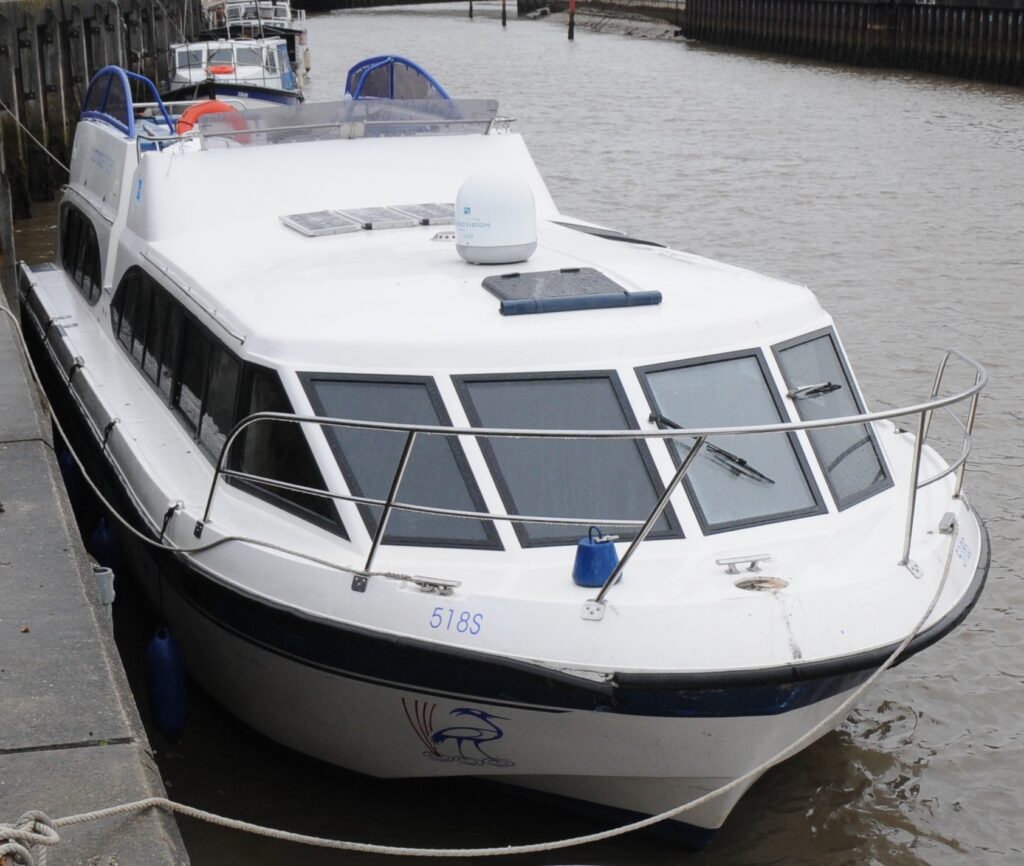 Motor cruiser Diamond Emblem 1 moored during daytime
Motor cruiser Diamond Emblem 1 moored during daytime
A holidaymaker who drowned would have been unlikely to fall into the water if an adequate guardrail had been in place on the boat’s stern, an inquiry has concluded.
The Marine Accident Investigation Branch (MAIB) has released its report into the fatal accident, in which holidaymaker Laura Perry went overboard during a family boating holiday in Great Yarmouth, England.
On 19 August 2020, Perry fell overboard from the aft deck, when Diamond Emblem 1‘s stern made hard contact against an embankment wall opposite Great Yarmouth Yacht Station on the River Bure. She became entangled underwater by the rope and propeller, suffering multiple injuries that resulted in her drowning, the report said.
The report by MAIB found numerous safety issues on the vessel that may have contributed to Perry’s death, and says that an adequate guardrail around the boat’s stern would likely have prevented her from falling into the water.
“The boat’s driver at the upper helm control position was unable to control the motor cruiser at the time of the accident. This was most likely because the helm position changeover lever had been incorrectly set to the lower helm control position,” the report said.
The report also found there was no way of identifying which helm control position had active control at the upper helm position, that no one on board fully understood the functionality of the boat’s dual helm controls, and the driver was unaware that the engine could be stopped from the upper helm control position.
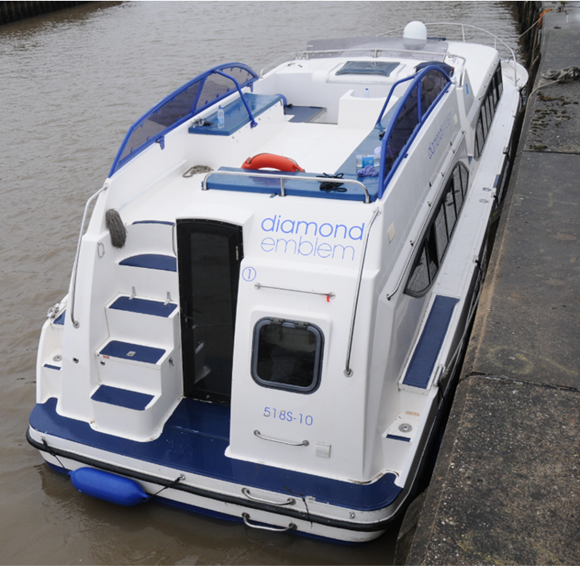
Further failings were found by the investigation, which concluded that both the boat handover and the documentation provided to the family were insufficient to ensure that the hire party were “competent to drive a boat with dual-helm control”.
It has been reported by BBC that the handover took place in ‘about 10 minutes’ while the group was loading luggage onto the boat.
Diamond Emblem 1’s conformance with the Recreational Craft Directive’s essential safety requirements was found to be incomplete in several respects and hazards inherent in the boat’s design were not considered.
“Boating holidays provide an excellent way of experiencing the UK’s network of inland waterways and the vast majority of the many trips completed each year are safe and uneventful,” says Andrew Moll, chief inspector of marine accidents. “However, this tragic accident demonstrates that boating is not without risk. A serious situation can quickly develop from benign circumstances if adequate precautions are not in place to mitigate the risks associated with controlling the boat and preventing people from falling overboard.”
Moll explains that large motor cruisers with sophisticated controls are becoming increasingly common and are often driven by members of the public who have limited or no proficiency in boat handling.
“It is imperative that complex multi helm controls incorporate appropriate technical features and indications to minimise the likelihood of an inadvertent loss of control,” he says. “Adequate protection around exposed deck areas is equally important in ensuring that no one falls into the water. Furthermore, handovers, including in-water demonstrations, and hire boat documentation need to be complete and rigorous in order to ensure that hirers have sufficient proficiency to safely handle the vessel in their charge.”
Numerous recommendations have been made in light of the accident and the report’s findings.
In October 2020, two month’s after Perry’s death, Moll urged the Association of Inland Navigation Authorities to amend the proposed Code for the Design, Construction and Operation of Hire Boats (the ‘Hire Boat Code’) to strengthen the requirements for person overboard prevention, handover procedures and engine control systems.
A series of further recommendations have been made to the Broads Authority and the boat’s operator — Ferry Marina, of Horning — to address ‘various aspects’ of the safe operation of their boats. The recommendations include enhancing handover procedures and conducting a “thorough assessment of the risks of people falling overboard its hire craft” to ensure hazards are mitigated. The operator must also ensure that safety-critical controls are easily identifiable on any boats that they operate.
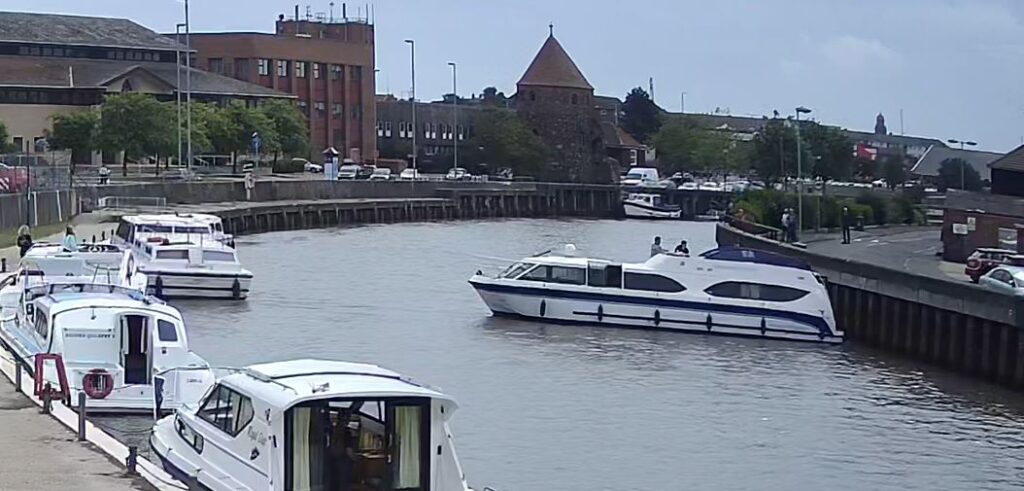
In addition, the Boat Safety Scheme has been recommended to conduct a review of its requirements for hire boats with multiple helm positions, to require a means of identifying the active helm and control system interlocks.
British Marine has released a statement confirming that it will be working with its inland hire associations, The Broads Hire Boat Federation and Inland Boating, to enable those recommendations that have yet to be implemented.
One of the recommendations to come out of the report was for the Broads Authority to make the British Marine and VisitEngland Quality Accredited Boatyard (QAB) Scheme a requirement of the Broads Authority’s Hire Boat and Hire Operators licensing provisions in addition to its own internal inspection regime.
“We welcome the MAIB report and will be reviewing fully the findings and recommendations and engaging with our members and other stakeholders to understand what actions we can take to support them and how we can work together to stop this kind of horrific accident happening again the future,” commented Lesley Robinson, CEO British Marine.
“Should the Broads Authority implement the recommendation we will work closely with them to ensure the smooth implementation of the QAB scheme as recommended by the MAIB in this report. We would also encourage all hire boat operators to read the report in its entirety and review their own procedures in order to learn from this tragic incident.”


